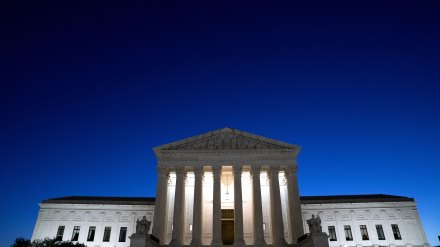Employers must now make a stronger case before denying religious accommodation requests under Title VII of the Civil Rights Act of 1964.
The U.S. Supreme Court clarified, through a unanimous decision in 2023, that denials must be based on a “substantial burden” to the employer’s business—not just a minimal inconvenience.
What Title VII Protects
Title VII prohibits employment discrimination based on:
- Race
- Color
- National origin
- Gender
- Religion
It also requires employers to “reasonably accommodate” an employee’s religious practices, unless doing so causes undue hardship to the business.
A Stronger Standard for Religious Requests
For more than four decades, lower courts allowed employers to reject religious accommodations using a low threshold: the “de minimis” standard—meaning any small burden was enough.
But in Groff v. DeJoy (2023), the Supreme Court changed that. The justices made clear that employers must now demonstrate a substantial, real burden if they want to deny a religious accommodation.
This decision offers stronger protections for religious practices in the workplace, including:
- Wearing religious attire
- Observing a Sabbath
- Other sincerely held beliefs
This is especially meaningful for bivocational pastors and church planters working both in ministry and secular jobs.
Who Is Covered?
This ruling only applies to employers subject to Title VII, which means they are:
- Engaged in interstate commerce, and
- Have 15 or more employees
📚 Many state civil rights laws provide similar protections, often with lower employee thresholds.
The Court’s Clarification
Writing for the Court, Justice Samuel Alito emphasized:
“Most lower courts have incorrectly latched on to ‘de minimis’ as the governing standard.”
He noted that the 1977 case Hardison v. Trans World Airlines used “undue hardship” as the core concept—but lower courts focused instead on the fleeting mention of “de minimis.”
Even the Equal Employment Opportunity Commission (EEOC) has moved away from “de minimis,” acknowledging that the law requires more than a minor cost.
Alito warned that prior interpretations made it harder for minority faiths to seek fair treatment:
“The ‘de minimis’ test … has blessed the denial of even minor accommodation in many cases.”
The Groff Case: Sundays Off
Gerald Groff, an Evangelical Christian, worked for the U.S. Postal Service (USPS) in Pennsylvania.
- In 2013, USPS began delivering Amazon packages on Sundays.
- Groff transferred to a location that didn’t yet require Sunday work.
- When that location later began Sunday deliveries, Groff sought a religious accommodation.
Groff’s lawyer said the request wasn’t formally rejected—but in practice, Groff was disciplined for not working Sundays.
The USPS argued Groff’s request created staffing conflicts and caused disruption. Eventually, Groff resigned and sued.
What the Court Decided
The Supreme Court did not decide whether USPS met the new “substantial burden” standard. Instead, it sent the case back to lower courts to reconsider under the clarified rule.
The Court also didn’t define a precise test for employers—but pointed back to the original Title VII language:
“A hardship is, at a minimum, something hard to bear,” Alito wrote.
He added that relevant considerations include:
- The specific accommodations requested
- The nature, size, and costs of the business
- The practical impact of granting the request
Bias Is Not a Justifiable Burden
The Court made clear that prejudice or hostility toward a religious accommodation extended to an individual, such as severely diminished staff morale or staff conflicts, cannot be used to claim hardship.
“A hardship that is attributable to employee animosity to a particular religion … cannot be considered ‘undue,’” Alito said.
Real-World Examples
Example 1:
Pastor Craig applies to be a delivery driver for Amazon. He can’t work Sundays due to his church responsibilities.
- Old rule: Amazon could argue that even a small inconvenience was enough to deny his request.
- New rule: Amazon must now show that giving Craig Sundays off would cause substantial difficulty or cost to the company.
Example 2:
Same situation—but this time, Craig applies at a local business with only 10 employees.
- Title VII does not apply, since the business has fewer than 15 workers.
- However, state laws may still protect Craig, depending on the jurisdiction.
Contributing Author: Richard R. Hammar, Church Law & Tax Co-Founder and Senior Editor
We’ve used a combination of AI and human review to make this content easier to read and understand.
